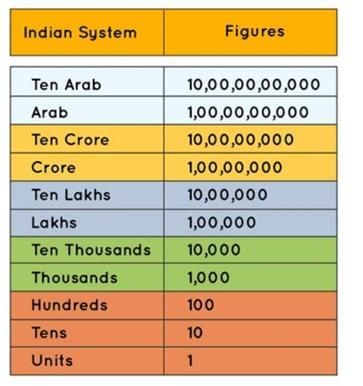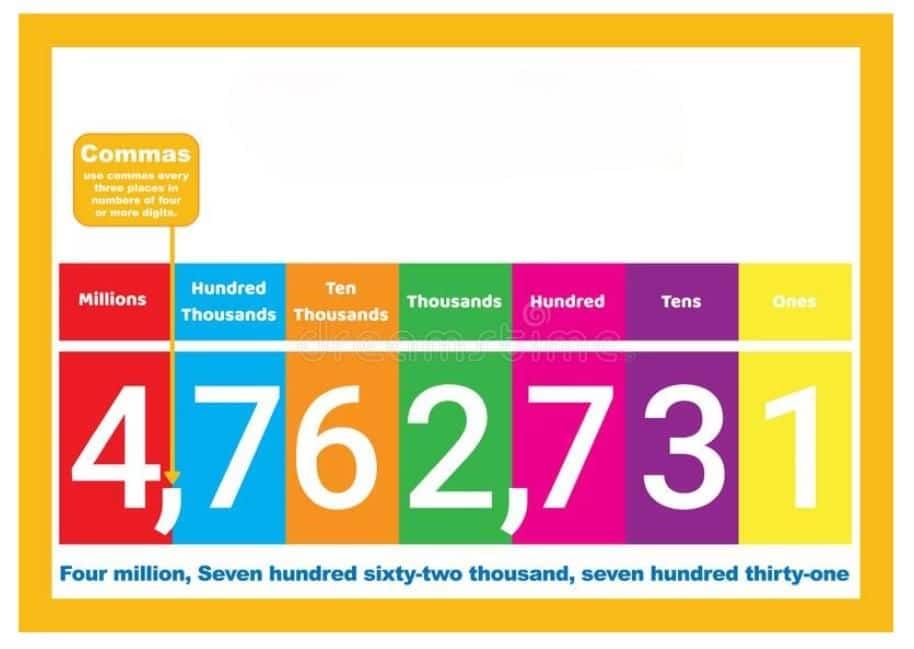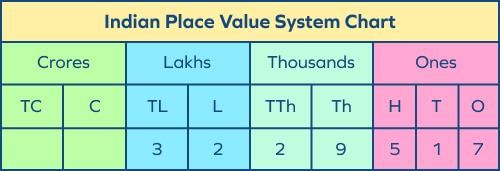 In the Indian place value system, 'lakh' represents one hundred thousand or 105. |
Card: 2 / 26 |
|
The number 12,78,830 can be broken down into how many crores, lakhs, thousands, and units? |
Card: 3 / 26 |
|
4,582 = 4,000 + 500 + 80 + 2
|
Card: 6 / 26 |
|
True or False: In the International place value system, commas are placed after every two digits. |
Card: 7 / 26 |
|
What is the primary difference in the grouping of digits between the Indian and International systems of numeration? |
Card: 11 / 26 |
|
Card: 12 / 26 |
|
What is the difference in terminology between the Indian and International systems for 106 ? |
Card: 13 / 26 |
 Unlock all Flashcards with EduRev Infinity Plan Starting from @ ₹99 only
|
So, 10 lakh = 1 million |
Card: 14 / 26 |
|
Fill in the blank: Six million eight hundred forty-nine thousand two hundred forty can be represented in the International system as ___ . |
Card: 15 / 26 |
|
True or False: In the International number system, 1 crore is equivalent to 1 million. |
Card: 19 / 26 |
 False. In the International number system, 1 crore is equivalent to 10 million. |
Card: 20 / 26 |
|
A store has 1,31,789 items. Should you round up or down to the nearest lakh for inventory planning? a) Round up to 2,00,000 b) Round down to 1,00,000 c) Round to 1,31,000 d) No rounding needed |
Card: 21 / 26 |
|
Ten thousands digit: 3 < 5, so round down to 1,00,000. For planning, round up to 2,00,000 to ensure enough stock. Answer: a) Round up to 2,00,000 |
Card: 22 / 26 |
|
A star is 1,79,21,437 km away. Express this distance in the International system. |
Card: 23 / 26 |
|
7,29,413 ≈ 7,30,000 (thousands digit 9, hundreds 4 < 5). 4,81,327 ≈ 4,80,000 (thousands digit 1 < 5). Sum: 7,30,000 + 4,80,000 = 12,10,000 |
Card: 26 / 26 |






















